We may not have the course you’re looking for. If you enquire or give us a call on 01344203999 and speak to our training experts, we may still be able to help with your training requirements.
We ensure quality, budget-alignment, and timely delivery by our expert instructors.
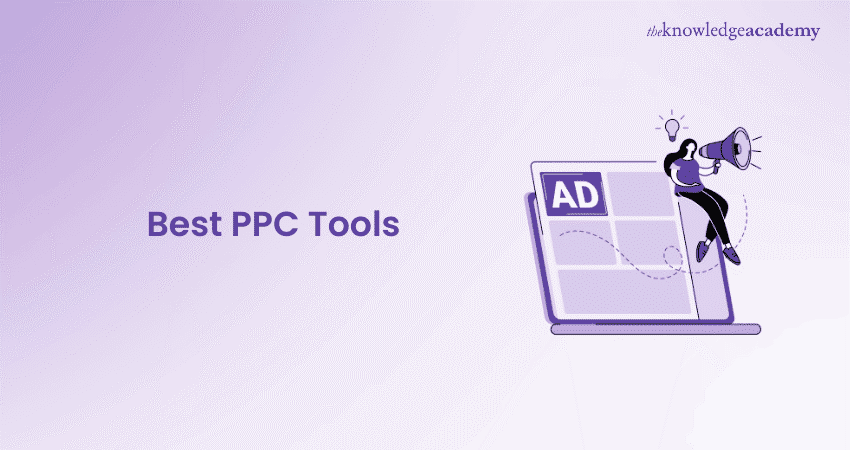
In the world of Digital Marketing, every click has the potential to change the game. But how do you ensure that every ad you run is hitting the mark? That’s where PPC Tools come in. These powerful tools aren’t just about managing budgets—they’re about transforming your campaigns into finely tuned machines that drive results.
In this blog, we’ll explore how the best PPC Tools can elevate your advertising strategy, optimise your spending, and maximise ROI. With the right tools in your hands, your success is just a click away. Let’s turn those clicks into conversions!
Table of Contents
1) A Brief Overview of PPC
2) What are PPC Tools?
3) What are the Benefits of PPC Tools?
4) Types of PPC Tools
5) Conclusion
A Brief Overview of PPC
PPC or Pay-Per-Click is a digital advertising model where companies pay a fee each time a customer clicks on their advertisement. To Become a PPC Specialist, it's crucial to know that advertisements appear on Search Engine Results Pages (SERP) or within advertising networks. Platforms like Google Ads, Microsoft Advertising, Facebook Ads, and LinkedIn Ads are popular for PPC campaigns.
Advertisers bid on keywords, and the Cost Per Click (CPC) is chosen through an auction system influenced by bid amount and ad quality score, which considers relevance and click-through rates. PPC campaigns are highly customisable, allowing businesses to target specific keywords, demographics, and locations to reach their desired audience effectively. However, many are now looking for a PPC alternative to broaden their marketing strategies and reduce dependency on the traditional PPC model.
What are PPC Tools?
PPC Tools are software, platforms, or utilities designed to help businesses manage, optimise, and analyse their Pay-per-click advertising campaigns. These tools streamline processes, improve ad performance, and enhance targeting efficiency. They are essential for marketers aiming to maximise ROI and save time.
What are the Benefits of PPC Tools?
PPC offers a host of benefits to businesses, which are described briefly in the list as follows:
a) Keyword and Bid Management: PPC Tools help prioritise keywords and manage bids effectively, ensuring your ads reach the right audience at the right cost.
b) Competitor Analysis: These tools collect data about your competitors, allowing you to adjust your strategies to stay ahead.
c) Traffic and Conversion Analysis: PPC Tools analyse traffic sources and conversions, providing insights into which campaigns are most effective.
d) Automation: They automate bidding decisions and other repetitive tasks, freeing up time for strategic planning.
e) Performance Tracking: You can track ad performance over time, making it easier to optimise campaigns for better results.
f) Trend Monitoring: PPC Tools monitor keyword trends and performance, helping you stay updated with market changes.
g) Budget Optimisation: They help optimise and spend and structure, ensuring you get the best return on your investment.
Types of PPC Tools
Here are the top PPC Tools to elevate your campaigns and maximise ROI:
1) Google Ads
Widely utilised by businesses of all sizes, Google Ads is a cornerstone of Digital Marketing strategies.
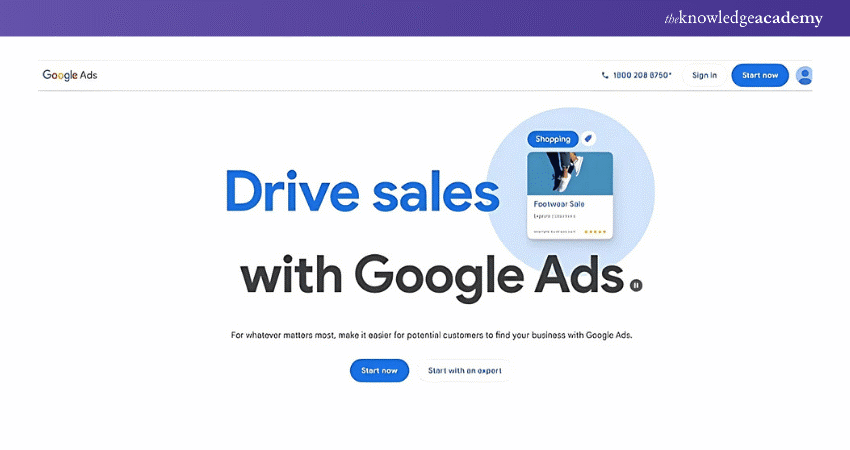
Features:
a) Keyword Planner
b) Ad creation and management
c) Performance tracking and reporting
d) Audience targeting
e) Automated bidding
Pros:
a) Extensive reach
b) Detailed analytics
c) Multiple ad formats
d) High intent targeting
Cons:
a) Can be expensive
b) Steep learning curve
c) Requires constant monitoring
2) SEMrush
Looking to streamline your campaigns? Discover the best Campaign Management Tools for success!
SEMrush is also known for its extensive database, which is updated frequently to provide the latest data.
Features:
a) Keyword research
b) Competitor analysis
c) Site audit
d) Backlink analysis
e) PPC keyword tool
Pros:
a) Comprehensive SEO and PPC Tools
b) Detailed competitor insights
c) Robust reporting
Cons:
a) Expensive
b) It can be overwhelming for beginners
c) Limited free version
3) Ahrefs
Ahrefs is particularly popular among content marketers for its content explorer tool.
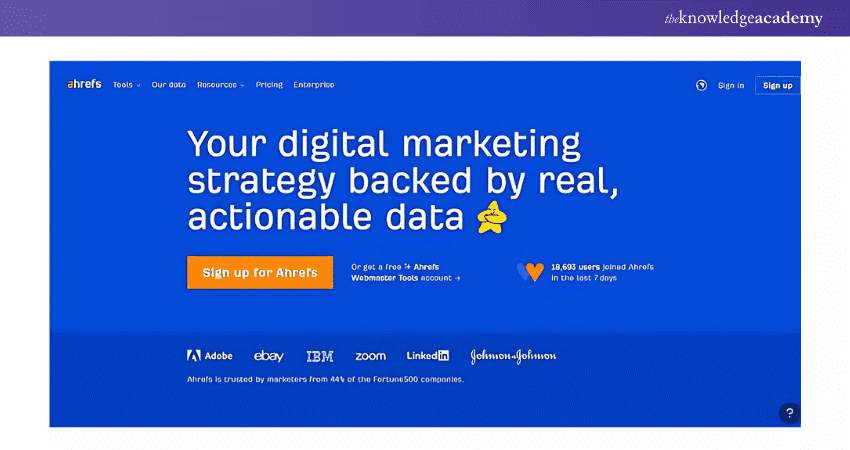
Features:
a) Keyword explorer
b) Site audit
c) Rank tracker
d) Content explorer
e) Backlink analysis
Pros:
a) Excellent for backlink analysis
b) Comprehensive keyword research
c) Detailed site audits
Cons:
a) No free trial
b) Expensive
c) Limited integrations
4) WordStream
WordStream offers a free PPC performance grader that helps businesses evaluate their ad campaigns.
Features:
a) Ad optimisation recommendations
b) Real-time bid management
c) Keyword research tool
d) Performance grader
e) Reporting and insights
Pros:
a) Easy to use
b) Great for small to medium businesses
c) Comprehensive keyword tools
Cons:
a) Limited platform support
b) Customer service can be lacking
c) Overwhelming features for beginners
5) SpyFu
SpyFu provides historical data on competitors' ad campaigns, helping you understand long-term strategies.
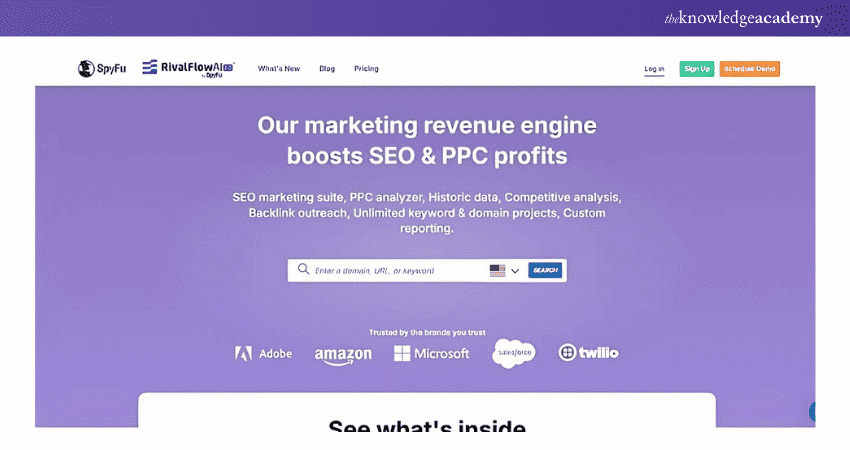
Features:
a) Competitor analysis
b) Keyword research
c) Backlink tracking
d) PPC research
e) Ad history
Pros:
a) Affordable
b) Great for competitor insights
c) Unlimited search results
Cons:
a) Data accuracy can vary
b) Limited backlink analysis
c) Interface can be clunky
6) AdEspresso
AdEspresso offers a community and resources for learning best practices in social media advertising.
Features:
a) A/B testing
b) Ad creation and management
c) Analytics and reporting
d) Audience targeting
e) Integration with Facebook, Instagram, and Google Ads
Pros:
a) User-friendly
b) Great for social media ads
c) Detailed analytics
Cons:
a) Can be expensive
b) Limited to certain ad platforms
c) Some features may be redundant with native ad managers
Take your content writing skills to the next level with our Content Marketing Course, sign up now!
7) Optmyzr
Optmyzr is known for its customisable scripts that allow for advanced PPC automation.
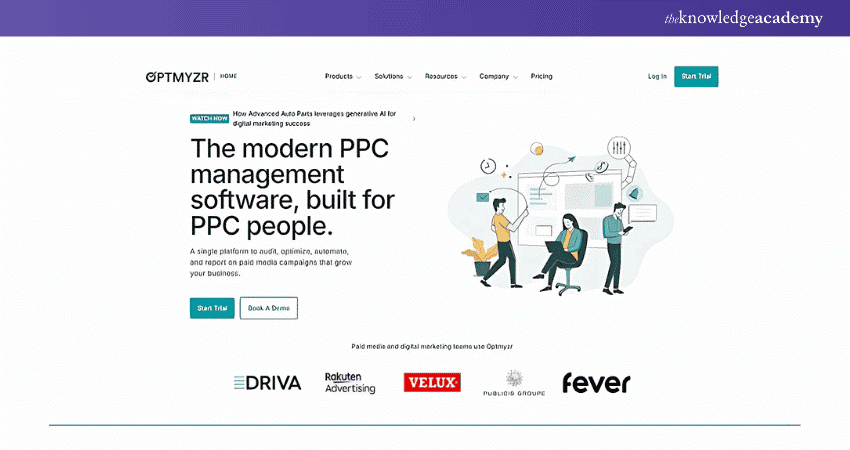
Features:
a) Automated bid management
b) PPC optimisation
c) Custom reporting
d) Rule-based automation
e) Shopping campaign tools
Pros:
a) Advanced automation
b) Saves time on repetitive tasks
c) Customisable workflows
Cons:
a) Expensive
b) Limited features for smaller accounts
c) It Can be complex to set up
8) Bing Ads (Microsoft Advertising)
Bing Ads often reaches a unique audience that may not be as active on Google, providing additional market coverage.
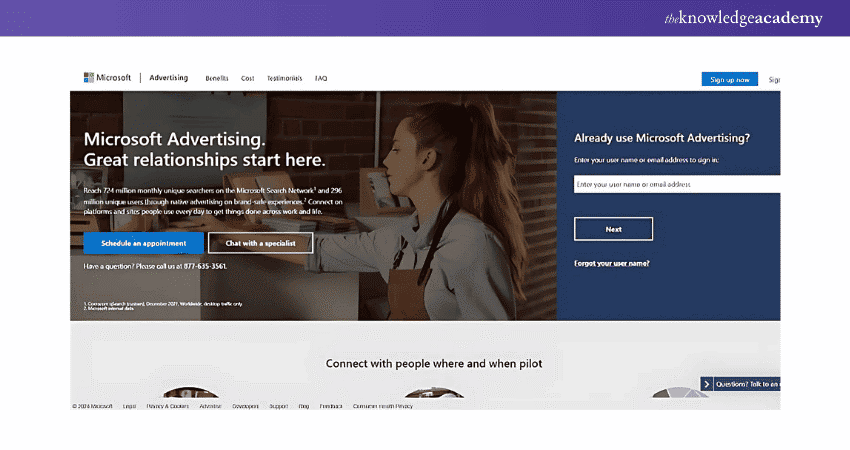
Features:
a) Keyword research
b) Ad creation and management
c) Performance tracking
d) Audience targeting
e) Automated bidding
Pros:
a) Lower competition
b) Higher conversion rates
c) Unique audience demographics
Cons:
a) Smaller audience compared to Google
b) Fewer features
c) Less mobile traffic
9) Facebook Ads Manager
Facebook Ads Manager integrates seamlessly with Instagram, allowing for streamlined ad management across both platforms.
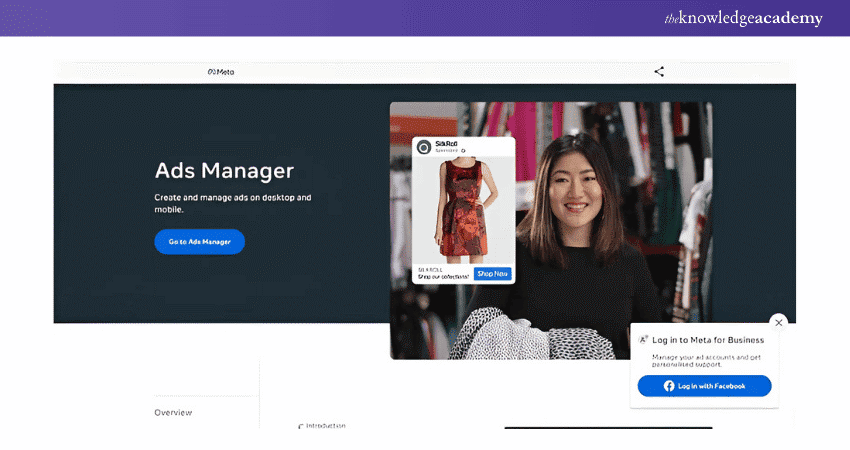
Features:
a) Ad creation and management
b) Audience targeting
c) Performance tracking
d) A/B testing
e) Integration with Instagram
Pros:
a) Highly targeted reach
b) High user engagement
c) Cost-effective
Cons:
a) Only reaches Facebook users
b) Complicated ad management
c) Competitive environment
10) Kenshoo (Skai)
Kenshoo supports a wide range of advertising channels, including search, social, and e-commerce.
Features:
a) Cross-channel campaign management
b) Automated bidding
c) Advanced reporting
d) Audience targeting
e) Budget management
Pros:
a) Comprehensive online marketing solutions
b) Easy customer engagement
c) Speedy conversion of potential customers
Cons:
a) Expensive
b) Complex setup
c) Limited features for small businesses
11) Marin Software
Marin Software is known for its ability to manage large-scale campaigns across multiple platforms.
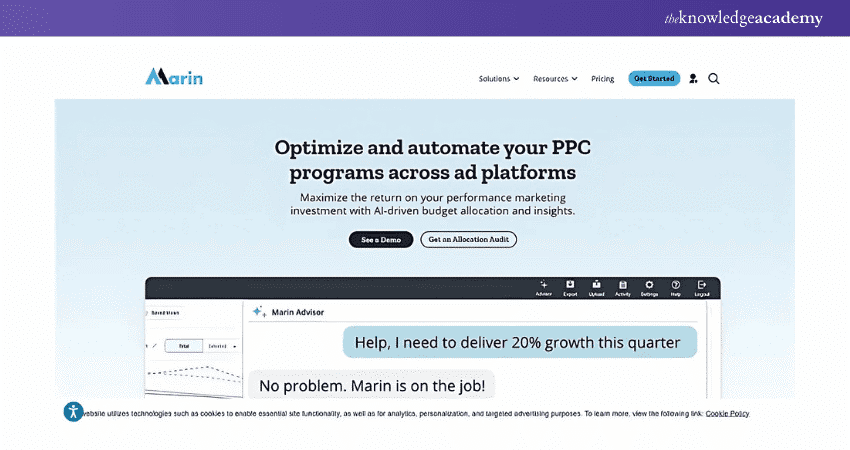
Features:
a) Cross-channel campaign management
b) Automated bidding
c) Conversion tracking
d) Reporting and analytics
e) Budget management
Pros:
a) Flexible reporting capabilities
b) Effective conversion tracking
c) Easy-to-use interface
Cons:
a) Expensive
b) It can be slow to update
c) Limited customisation
12) Unbounce
Unbounce is user-friendly, making it accessible even for those with limited technical skills.
Features:
a) Drag-and-drop landing page builder
b) A/B testing
c) Dynamic text replacement
d) Real-time analytics
e) SEO tools
Pros:
a) User-friendly interface
b) Extensive template library
c) Integrates with numerous marketing tools
Cons:
a) It can be pricey for small businesses
b) Limited template options
c) Slower customer support response times
13) ClickCease
ClickCease is particularly useful for businesses in highly competitive industries where click fraud is more prevalent.
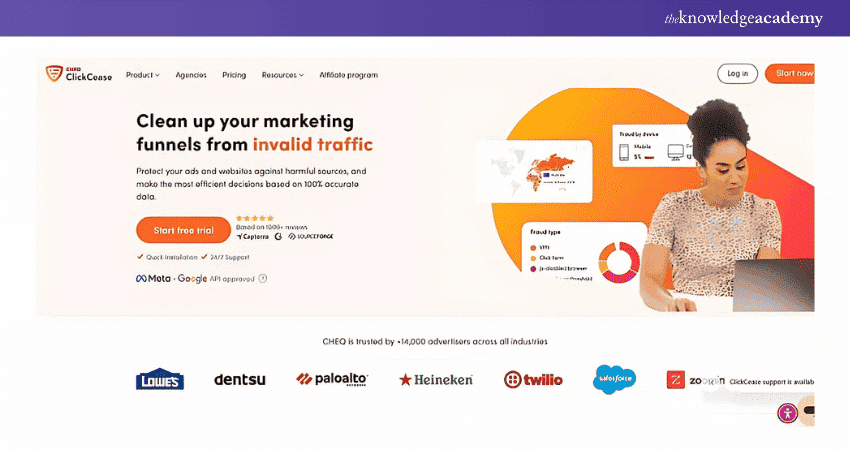
Features:
a) Automatic fraud prevention
b) Bad IP detection
c) Proxy server detection
d) 24/7 fraud monitoring
e) Customisable detection rules
Pros:
a) Prevents click fraud
b) Real-time notifications
c) Easy to use
Cons:
a) Can be expensive
b) Limited to certain ad platforms
c) Requires some technical knowledge
14) HubSpot Ads
HubSpot Ads integrates with the broader HubSpot ecosystem, providing a unified marketing and sales platform.
Features:
a) Ad creation and management
b) Audience targeting
c) Performance tracking
d) Integration with CRM
e) Automated reporting
Pros:
a) Integrates with HubSpot CRM
b) User-friendly interface
c) Comprehensive analytics
Cons:
a) Expensive
b) Limited customisation
c) It Can be complex for beginners
15) AdRoll
AdRoll's strength lies in its ability to retarget users across multiple devices and platforms.
Features:
a) Retargeting
b) Cross-device reach
c) Personalised ads
d) Predictive buying
e) Performance tracking
Pros:
a) Effective retargeting
b) Multi-platform capabilities
c) Relevant customer data analysis
Cons:
a) Expensive
b) Limited support for landing pages
c) It can be complex to set up
16) Google Analytics
Google Analytics is a free tool that provides powerful insights, making it a staple for Digital Marketers.
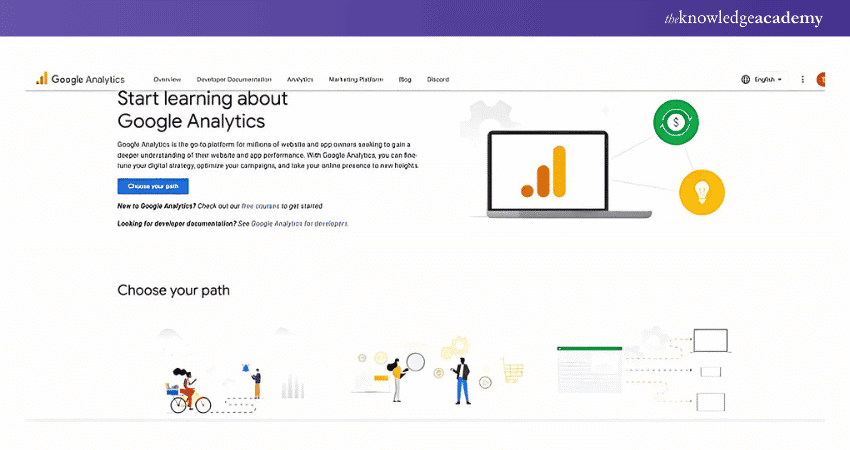
Features:
a) Real-time data tracking
b) Audience insights
c) Conversion tracking
d) Custom reporting
e) Integration with other Google tools
Pros:
a) Free to use
b) Comprehensive data analysis
c) Easy integration with other tools
Cons:
a) Steep learning curve
b) It Can be overwhelming for beginners
c) Limited customer support
17) Supermetrics
Supermetrics is valued for its ability to automate data collection, reducing manual reporting efforts.
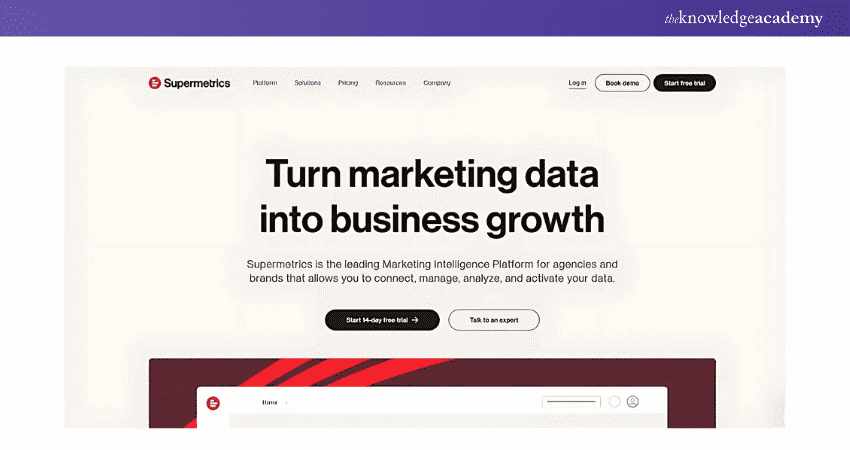
Features:
a) Data connectors
b) Automated reporting
c) Customisable dashboards
d) Data import/export
e) Integration with multiple platforms
Pros:
a) Saves time on data transfers
b) No coding required
c) Supports multiple data sources
Cons:
a) Expensive
b) Occasionally buggy
c) Limited data source connectors
18) CallRail
CallRail's call-tracking capabilities help businesses understand the impact of their PPC campaigns on phone call conversions.
Features:
a) Call tracking
b) Dynamic number insertion
c) Call recording
d) Performance analytics
e) Integration with CRM
Pros:
a) Tracks phone call conversions
b) Detailed call analytics
c) Easy integration with other tools
Cons:
a) Can be expensive
b) Limited to call tracking
c) Requires setup and maintenance
Understand the journey of the cosumer with our Consumer Behaviour Course, sign up now!
19) Google Tag Manager
Google Tag Manager allows marketers to manage and deploy marketing tags without needing to modify the code.
Features:
a) Tag management
b) Event tracking
c) Customisable triggers
d) Integration with Google Analytics
e) User permissions
Pros:
a) Simplifies tag management
b) Free to use
c) Easy integration with other Google tools
Cons:
a) Steep learning curve
b) It can be complex to set up
c) Limited customer support
20) Moz
Moz also offers a vibrant community and educational resources for SEO and Digital Marketing professionals.
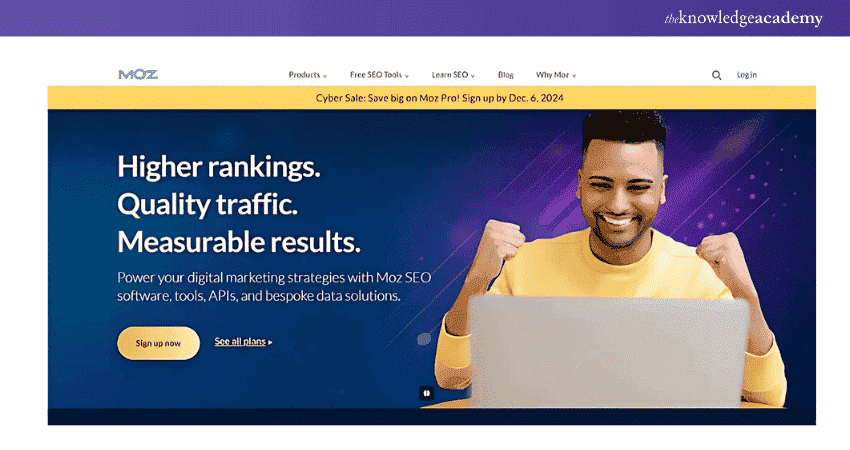
Features:
a) Keyword research
b) Site audits
c) Rank tracking
d) Backlink analysis
e) On-page optimisation
Pros:
a) Comprehensive SEO tools
b) Detailed keyword research
c) Easy-to-use interface
Cons:
a) Expensive
b) Limited PPC features
c) It can be overwhelming for beginners
Conclusion
PPC Tools are your secret weapon for turning every campaign into a powerhouse of performance. They sharpen your targeting, optimise your budget, and unlock insights that fuel growth. Additionally, creating a Landing Page that aligns with your PPC strategy can maximise the effectiveness of each click, turning every step into a more impactful move toward dominating the digital landscape.
Register to our comprehensive Marketing Courses and elevate your Marketing skills today!
Frequently Asked Questions
What are the Five Key Aspects of PPC?

The five key aspects of PPC are keyword research, bid management, ad creation, targeting, and performance tracking. These elements work together to optimise campaigns and maximise ROI.
How Effective is pay-per-click?

Pay-per-click is highly effective for driving targeted traffic, increasing conversions, and providing measurable results. Proper optimisation can deliver a high return on investment and enhance brand visibility quickly.
What are the Other Resources and Offers Provided by The Knowledge Academy?

The Knowledge Academy takes global learning to new heights, offering over 3,000 online courses across 490+ locations in 190+ countries. This expansive reach ensures accessibility and convenience for learners worldwide.
Alongside our diverse Online Course Catalogue, encompassing 19 major categories, we go the extra mile by providing a plethora of free educational Online Resources like News updates, Blogs, videos, webinars, and interview questions. Tailoring learning experiences further, professionals can maximise value with customisable Course Bundles of TKA.
What is The Knowledge Pass, and How Does it Work?

The Knowledge Academy’s Knowledge Pass, a prepaid voucher, adds another layer of flexibility, allowing course bookings over a 12-month period. Join us on a journey where education knows no bounds.
What are the Related Courses and Blogs Provided by The Knowledge Academy?

The Knowledge Academy offers various Marketing Courses, including Pay Per Click (PPC) Training, Introduction To Marketing Training, Business Marketing Strategies Training and Strategic Marketing Course. These courses cater to different skill levels, providing comprehensive insights into PPC Interview Questions.
Our Digital Marketing Blogs cover a range of topics related to Pay Per Click, offering valuable resources, best practices, and industry insights. Whether you are a beginner or looking to advance your Marketing skills, The Knowledge Academy's diverse courses and informative blogs have got you covered.
Upcoming Digital Marketing Resources Batches & Dates
Date
 Pay Per Click (PPC) Training
Pay Per Click (PPC) Training
Fri 13th Jun 2025
Fri 15th Aug 2025
Fri 10th Oct 2025
Fri 12th Dec 2025






 Top Rated Course
Top Rated Course



 If you wish to make any changes to your course, please
If you wish to make any changes to your course, please


